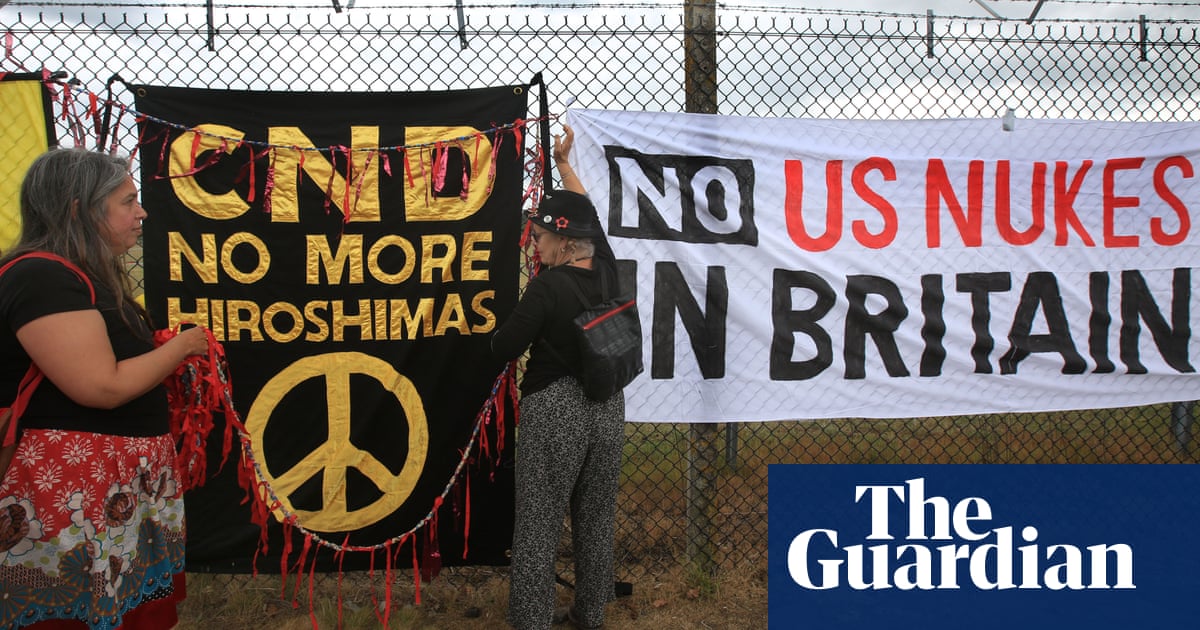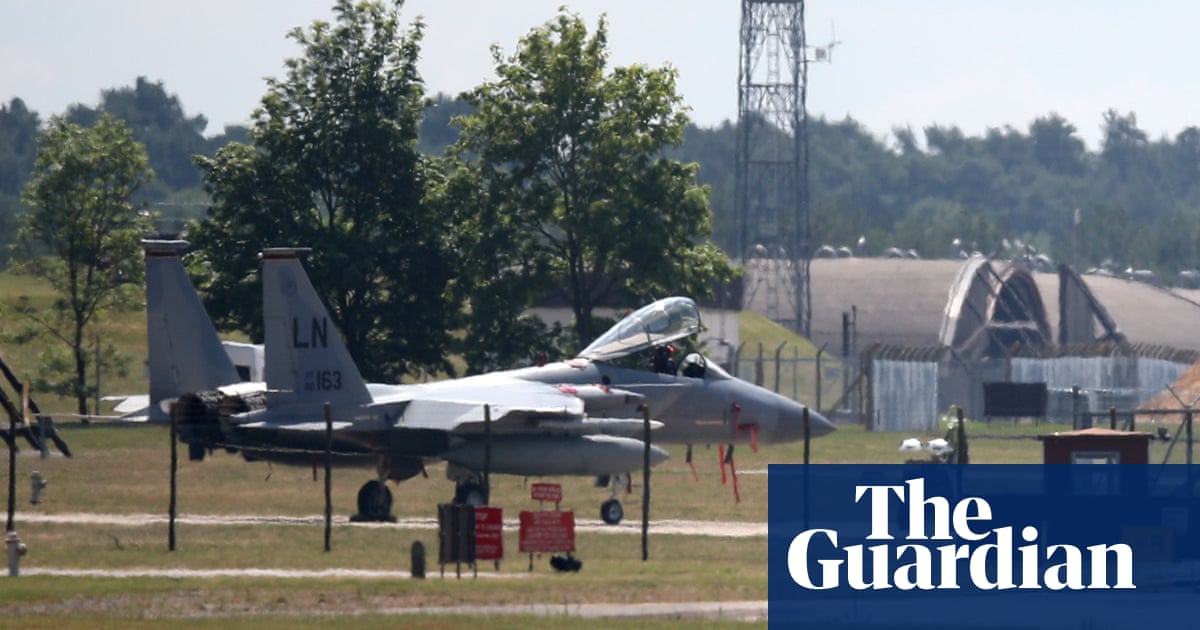
An attempt by the Ministry of Defence to build a dormitory that could lead to the return of US nuclear weapons to British soil is being challenged by the Campaign for Nuclear Disarmament (CND) because it is being attempted without planning permission.
The campaign group has asked West Suffolk council to intervene and insist that the planned 144-bed facility at RAF Lakenheath be subject to an environmental impact assessment or be halted.
Work on the dormitory is due to start next year and its purpose is to house the extra US personnel who would be needed to safeguard any return of B-61 air-launched nuclear bombs to Lakenheath for the first time since 2007.
Kate Hudson, CND’s general secretary, accused the US air force of ploughing ahead by “purportedly relying on planning rights that assume that the development won’t have significant environmental effects”, and so ignoring the risks that storing nuclear weapons in Suffolk would entail.
US nuclear weapons were stationed in the UK throughout the cold war, provoking decades of protest. Cruise missiles were deployed at Greenham Common but were removed from the Berkshire site in 1991. Air-launched gravity bombs remained at Lakenheath until 16 years ago.
After three decades of partial disarmament, nuclear states have been gradually upgrading and increasing the size of their arsenals. Two years ago, the UK said it would increase its stockpile of Trident warheads by 40% to 260, while the US is updating its gravity bombs to the B61-12, which has a maximum yield of 50 kilotonnes.
It is the B61-12 that the US is considering whether to deploy at Lakenheath. The maximum power of the warhead is more than treble the 15-kilotonne Hiroshima blast, the first of two bombs dropped on Japan at the end of the second world war.
Vladimir Putin this month withdrew Russia’s ratification of the comprehensive nuclear test ban treaty, placing his country in an equivalent position to the US. Moscow has repeatedly drawn attention to its nuclear missiles since its invasion of Ukraine in February 2022.
The MoD’s position is that it believes the proposed dormitory at Lakenheath does not need planning permission because the crown has permitted development rights and so the work can continue without public consultation.
CND argues that it is not the crown that is undertaking the development but the USAF, using a $50m budget allocation granted by Congress, and that the environmental impact assessment cannot be sidestepped.
If the council declines to intervene, CND is likely to go to the courts and seek a judicial review of its decision. The battle over the dormitory is thought to be the only way to start a public consultation of the plans, as storing nuclear weapons at Lakenheath is not itself a planning issue.
Ricardo Gama, a solicitor at Leigh Day, advising CND, said the goal was to give the nuclear weapons storage plans proper scrutiny. “The planning process is one way for members of the public to make representations on these controversial plans,” he said.
The MoD has a policy of not confirming the presence of nuclear weapons at a given location. Details of the weapons storage proposal have instead emerged through Pentagon budgetary disclosures. The facilities are not expected to be ready to store any nuclear bombs until the middle of the decade.
West Suffolk council has been contacted for comment.












